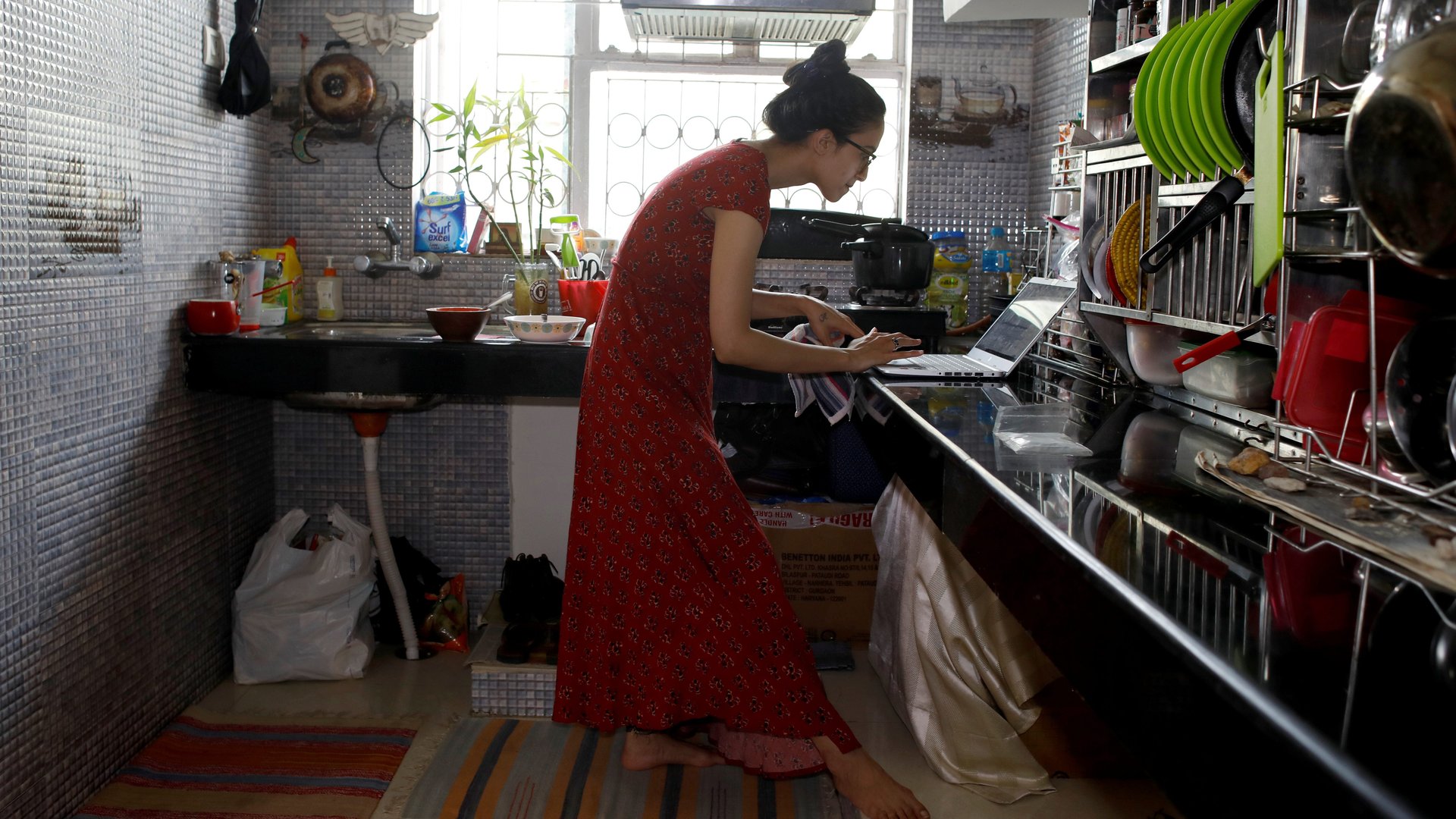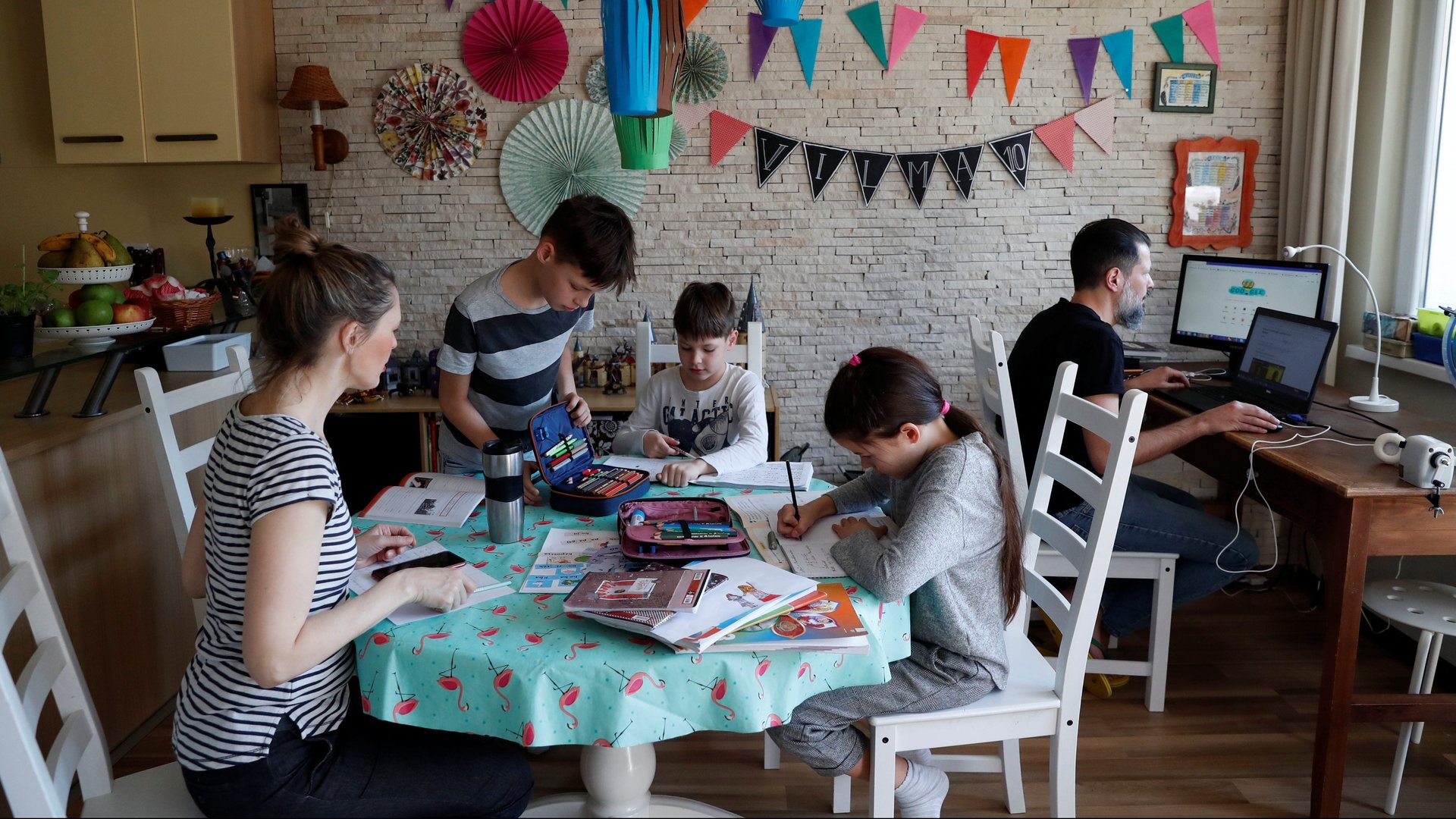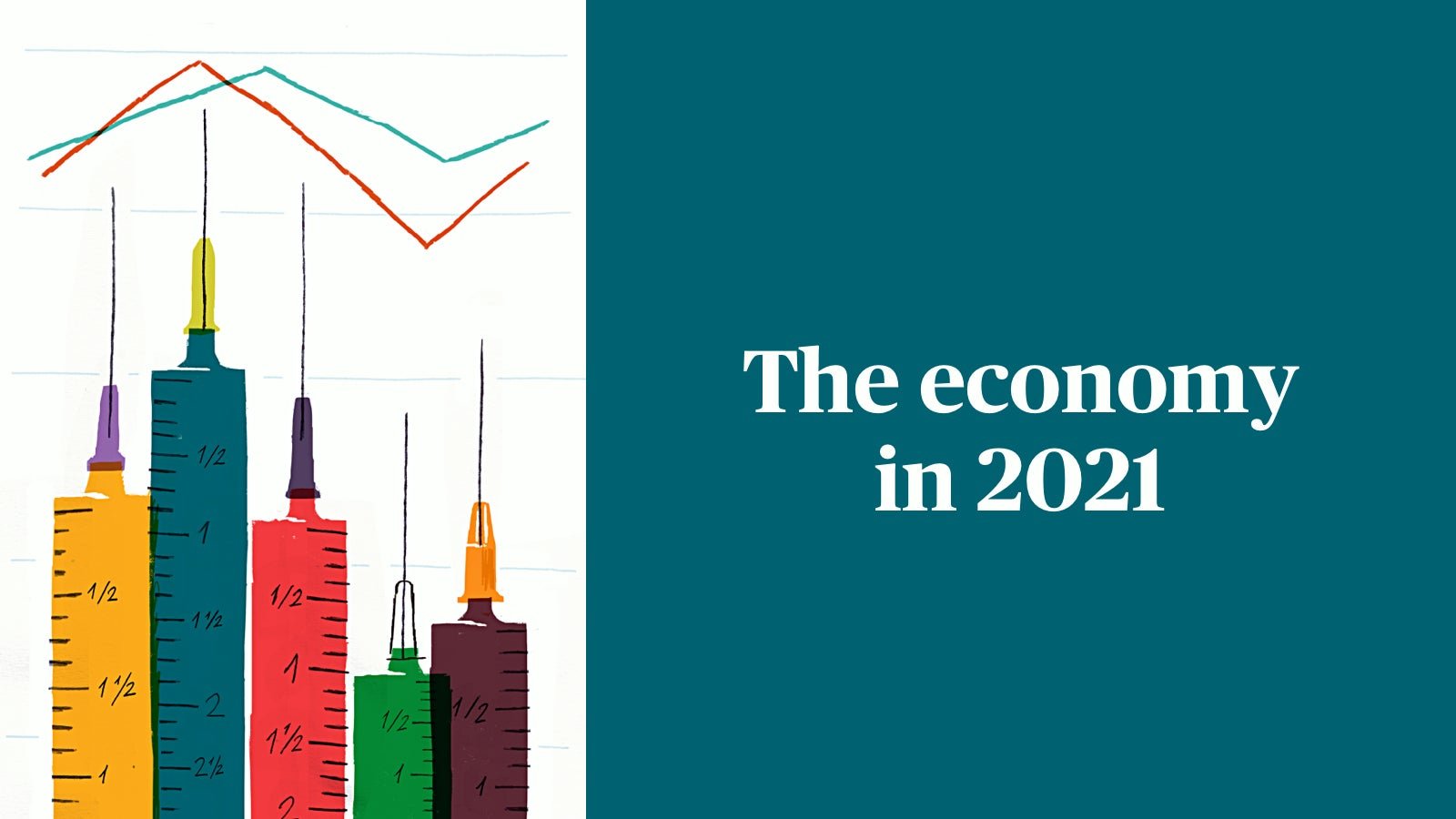Welcoming new standards of professionalism
To modern workers everywhere,


To modern workers everywhere,
During the uniquely horrible year that was 2020, I opened up to my manager and colleagues as never before. Together we shared worries over medical issues and our families’ health, teared up over loneliness during lockdown, commiserated over the stress and pain of layoffs and broader uncertainties about the future.
I hope that in 2021, we’ll have less sadness and anxiety in common. But I am grateful for the fact that our collective troubles over the past year gave rise to more emotional honesty in the virtual office, and hopeful that it may usher in a broader understanding of professionalism that makes room for workers’ complicated lives and psychological realities.
Ninety percent of employers say the pandemic has had an impact on their workforce in terms of either mental health, substance abuse, or productivity, according to a McKinsey survey of roughly 1,000 companies published in June. (Tell us if you know who the other 10% are.) The fact that the disruption to normal life has been so marked and so widespread has lessened the stigma around admitting to our struggles at work.
“As a society, we’re all experiencing isolation, loneliness, and grief,” says Mollie West Duffy, co-author of No Hard Feelings: The Secret Power of Embracing Emotions at Work and head of organizational development at consulting firm Rally. “Whereas previously, everyone does experience those things, but we’re not all in it together at the same moment.”
The fact is that we all have bad days, weeks, and months. It’s nearly impossible and generally undesirable to try to pretend otherwise with our bosses, direct reports, or colleagues. With any luck, the lessons of 2020 will accelerate the trend that was already underway in our reassessing standards of professionalism, making room for more of our humanity, at work.—Sarah Todd

Five things we learned this week
A new union at Google is breaking the mold. It’s allowing contractors in as members—and we predict it’s just the start of employee activism in 2021.
Meghan McCain returned from maternity leave with a family values lecture on The View. It was aimed at US conservatives.
What to do in the first 90 days of a remote job. Remote onboarding is a challenge. These tips can help.
H-1B hopefuls have one big ask of the incoming Biden administration. Undo Trump’s damage.
The best response to uncertainty is a master plan. A clear destination allows teams to improvise as needed, without falling into reactivity.
30-second case study
Buy a large thermos bottle, and fill it with either Chinese herbal tea or whiskey, as a desk-side companion. Set a reminder on your phone to drink eight glasses of water every day, and leave your workstation every 50 minutes to get that water. Start doing 15 minutes of stretches, or planking, in the office pantry. Set the goal of becoming the person who uses the most toilet paper in the company.
These are some of the tips (link in Chinese) for how to slack off at work provided by Massage Bear, a Chinese blogger whose musings on China’s Twitter-like Weibo have attracted more than half a million followers. Her philosophy of “touching fish” (mō yú), a Chinese phrase synonymous with lazing around at work, has resonated in recent months with many Chinese millennials, increasingly exhausted by society’s ever more intense rat race.
A widening wealth gap has led many to mourn their increasingly bleak prospects, and prompted some to reject social norms around work and productivity.
“‘Touching fish’ is a passive way of rebelling for the young proletariat like me,” says Massage Bear, who declined to identify her actual name. The blogger tells Quartz’s Jane Li she isn’t trying to get people to shirk work. But she does think people should question why they work excessive hours to impress their boss or compete with colleagues. “People feel no matter how much work they do, they still get paid the same, while their bosses can change three cars in two years because of the employees’ hard work,” she says.
The takeaway: The complaints of today’s young Chinese stand in stark contrast to the government-reinforced belief of their parents’ generation: that working hard would translate into a better quality of life and accumulation of greater wealth. The benefits derived from China’s economic boom, starting in the 1980s, cemented the link between overwork and financial success. But for a younger generation, particularly those in the middle class, it has become increasingly difficult to replicate the successes of previous generations amid China’s slowing economy.
Although China has bounced back more quickly than other countries this year, its coronavirus outbreak led to the country’s first quarterly contraction in GDP in nearly 30 years, and possibly the country’s slowest annual economic growth since the 1970s. These conditions are likely to exacerbate the concerns of young Chinese graduates about their prospects and heighten the flood of complaints on Weibo, whether from delivery drivers or white-collar workers, that work is becoming more competitive with few corresponding rewards.
A Quartz field guide interlude

This time last year, the coronavirus was already spreading, but it wasn’t until February that the world began to realize the magnitude of the challenge it faced. There are undoubtedly ugly surprises awaiting us in 2021, too, despite the feeling that 2020 has really offered all the downside humanity can handle. In a piece on the other wildcards that could sabotage us yet, Quartz’s Tim Fernholz details what would be keeping us up at night, if we weren’t already sleeping so poorly. It’s part of our new field guide to the 2021 economy, which we promise isn’t a total downer.
Words of wisdom
“During the ‘off-hours,’ I’ve found that it can be tempting to turn on my laptop or phone if I think of something I need to do the next day or an email I forgot to send, particularly if I wake up thinking about it at night. … I started keeping a notebook specifically for these situations. When I remember something I want to prioritize tomorrow, a new item to add to my to-do list, or a person I need to check in with, I write it down on paper. That way, I can be sure I’ll address it tomorrow without breaking my technology boundaries.”—Okta co-founder Frederic Kerrest
Switching off screens during family hours is one of the main ways Kerrest coped with 2020’s assault on our senses. Inspired by EarnUp co-founder Matthew Cooper’s article in Quartz at Work about stepping down as CEO to prioritize his mental health issues, Kerrest opened up about how difficult the pandemic pressures have been, and the three main things (screen breaks among them) that he has found to be helpful for mental health during this time. Read his advice here.
ICYMI
There are few silver linings to this pandemic, but one of them is that remote workers have finally been put on even footing with office folk—no more fears of being forgotten about or suspected of goofing off all day, at least no more so than anyone else. But what will happen once more people start to trickle back into their old workplaces? How can managers take advantage of everything they’ve learned in the past year, and make sure the return to the office doesn’t create inequalities? Jackie Bischof, an editor at Quartz, considered the lessons learned and talked to leaders who regularly apply them. She shares their insights here.
You got The Memo!
Our best wishes for a productive and creative day and a happy and healthy new year. Please send any workplace news, H-1B reforms, and advice for staying off screens to [email protected]. Get the most out of Quartz by downloading our app and becoming a member. This week’s edition of The Memo was produced by Heather Landy, Jane Li, and Sarah Todd.